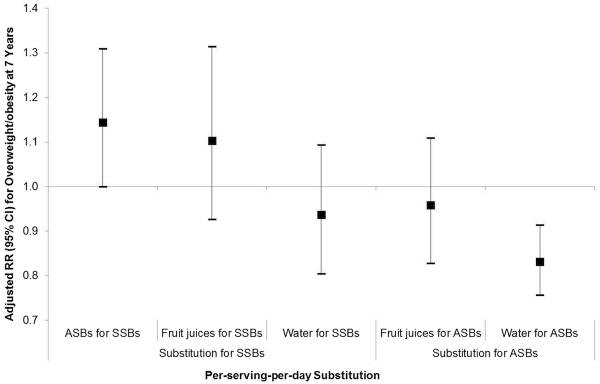It’s amazing how many studies have discovered the dangers of the chemicals used in diet beverages. From an increase in diabetes to more body fat storage to a higher risk of stroke and dementia, diet beverages can be detrimental to your health. Though they’re marketed as diet (and thus perceived as healthy), they are a food you should try to avoid as much as possible.
A new study from the NIH provides one more danger to add to the list: women who drink diet soda while pregnant raise their child’s obesity risk.
The study, published in the Journal of Epidemiology, examined the effects of diet soda versus water on the health of children born to mothers with gestational diabetes during pregnancy. When mothers drank diet soda during their pregnancy, the children had a 17% higher risk of obesity by the age of seven.
After using data collected from more than 91,000 Danish women, the study used data from just 900 cases of women suffering from gestational diabetes. Of those women, roughly 9% consumed one artificially sweetened diet beverage each day. Their children had a 60% higher risk of a high birth weight (indications of a higher obesity risk) than the mothers who didn’t touch diet drinks. The risk of their child becoming obese by the age of seven was 50% higher among the diet soda-drinking mothers.
And don’t think regular sugar-sweetened drinks (like regular soda or fruit drinks) were much better. Both groups (artificially-sweetened and regular sugar-sweetened drink consuming mothers) had an equal risk for obese and overweight children by the age of seven. Only those who didn’t consume sugary drinks during pregnancy had a lower risk of obese children, even in cases of gestational diabetes during pregnancy.
What is the link between diet drink consumption and obesity? The zero-calorie sodas may affect the gut bacteria or may cause the intestines to absorb more glucose than normal. There are also indications that high sugar consumption (especially artificial sugars) can desensitize the digestive tract and thus prevent fullness, leading to higher overall calorie consumption.

This chart shows the risk of offspring overweight or obesity at 7 years. The data correlates substitutions made in maternal per-serving-per-day consumption of SSBs (sugar-sweetened beverages) or ASBs (artificial sweetener beverages) with alternative beverages during pregnancy. Relative risks (RR) and 95% confidence intervals (CI) were adjusted to allow for the following: maternal pre-pregnancy body mass index, age, socioeconomic status, smoking during pregnancy; maternal intakes of total energy, desserts and sweets, oil/margarine/butter, potato, processed meat, refined grains and whole grains during pregnancy, and physical activity during pregnancy; and offspring sex, breastfeeding duration, consumption of ASBs and SSBs at 7 y, and physical activity at 7 y.
Drink water. It’s still your best option.
Reference:
1. Cuilin Zhang et al., “Maternal consumption of artificially sweetened beverages during pregnancy, and offspring growth through 7 years of age: a prospective cohort study,” Journal of Epidemiology, doi: 10.1093/ije/dyx095, published 6 June 2017.






